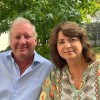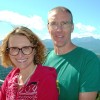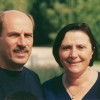
Europe
- Surface:
- 22978500 km2
- Inhabitants:
- 732758546
- Capital:
- Brussels
Economy
From 1500 untill 1940, Europe was the world’s dominant trading and industrial region. The destruction of two world wars in the 20th Century crippled development across the continent. In the east, Marxist economics miserably failed to achieve the Utopia it promised, but left behind polluted ecologies, rusting infrastructures and a damaged work ethic. In the west, progress continued. Though hampered to a degree by some trade and industry restrictions and generous union and welfare arrangements, progress was bolstered significantly by the growing clout of economic collaboration and union. The last decade was highlighted by the expansion of the EU to 27 states and 3 candidate countries in 2010, by the continued struggle of much of Eastern Europe to reduce the economic gap between themselves and the west, and by the significant impact of the 2008-2009 financial crisis on many countries in Europe. The combined impact of affluence and a rapidly falling birthrate make Western Europe a magnet for millions from more impoverished lands of Eastern Europe, Africa, and Asia.
Politics
From the French Revolution in 1789 until the tearing down of the Berlin Wall in 1989, European political ideologies have had worldwide dominance. Humanism, secularism, socialism, Marxism, fascism, Nazism and moral capitalism have all contributed to such evils as global wars, colonialism and oppression. To the surprise of many secular Europeans, religion and ethnocentrism remain important and major causes for political confrontations, but faith groups are also crucial to much of the social welfare work that occurs. Europe is enjoying a period of unprecedented peace, but tensions within and among European states as well as the growing issue of immigration continue to require watchfulness and wisdom.
Religion
After the Muslim invasions of the 8th Century, Christianity was suppressed or wiped out in the lands of the Middle East where the early Church first took root. For nearly 1,000 years, Europe was the last bastion of Christianity. The encircling Muslim lands – and Turkey’s occupation of southeast Europe – effectively prevented any missionary outreach to Africa and Asia. The emergence of Europe as a colonial power in the 15th Century and the theological impetus of the Reformation in the 16th Century provided the platform for the Church to become a force for world evangelization. The last 250 years have been years of worldwide advance for the gospel but, conversely, decline in Europe. However, in many countries that have seen secularism and anti-religious social policies have their sway, an upswing of spirituality is also occurring.
-
Filter:
- Where we work
- Service opportunities
Turn on JavaScript to display the map
-

Dan Adrover
First Culture Worker in Spain -

Ruben Mauricio & Karina Aldana
Cross Culture Workers in Spain -

Edgar & Jane Alvarez Alvarado
Cross Culture Workers in Spain -

Hans & Jennifer Anderson
Cross Culture Workers in Spain -

Ron & Brenda Anderson
Cross Culture Workers in Spain / European Church Planting Consultant -

Charlie & Miriam Anderson
First Culture Workers in N. Ireland / Member Care -

Toky (Tookie) and Sotiria Andrian Arimanana
Candidates for Greece -

Jan & Elisabeth Anema
Cross Culture Workers in Portugal -

Francisco & Nathalie Arjona
Cross Culture Workers in Spain -

Daniel & Primrose Avila
Cross Culture Workers in Kosovo -

Kostya & Iryna Bakanov
Cross Culture Workers in Croatia -

Colin & Jill Bakon
Cross Culture Workers in Spain -

Jeroen & Marieke Baks
Cross Culture Workers in Romania -

Marcus & Andressa Baridó Indá
Cross Culture Workers in Portugal -

Noah and Suzi Bartlett
Cross Culture Workers in Northern Ireland -

Stephen & Tabita Bell
Cross Culture Workers in Croatia -

Terence Bell
Cross Culture Worker in Slovenia -

Silvio & Tatiana Bizzo
Cross Culture Workers in Italy -

Andrew & Kate Blackwell
Field Ministries Director ECMI (Kate), Cluster Leadership / International Church Leadership in Bulgaria -

Frederik & Eline Boersema
First Culture Workers in the Netherlands -

Ingrid Bordon
Cross Culture Worker in France (retired) -

Matej Bordon
First Culture Worker -

Gina Borg
Cross Culture Worker in Malta -

Frank & Angelika Bosch
Cross Culture Workers in Croatia -

Jared & Verena Bradley
Cross Culture (Jared) & First Culture (Verena) Workers in Germany -

Sebastian & Fabiana Braun
Cross Culture Workers in Germany -

George & Cathy Brown
Global Ministry Consultant in ECMI-USA -

Erwin & Almut Büschlen
Cross Culture Workers in Italy -

Szczepan & Kamila Cackowski
First Culture Workers in Poland -

Tom & Grace Campbell
First Culture Workers in Ireland -

Danny & Damary Ceballos
Cross Culture Workers in Spain -

Giorgos & Luciana Christoforides
Cross Culture Workers in Greece -

Bostjan & Lidija Cifer
First Culture Workers in Slovenia -

Albert-Jan & Jacqueline Cloo
First Culture Workers in the Netherlands -

Steve & Lydia Cockram
Cross Culture Workers in Portugal -

Alexia C.
Cross Culture Worker in Romania -

Vera & Cicero da Costa
Cross Culture Workers in Spain -

Anna Crawford
Cross Culture Worker in Greece -

Eberson & Madalena David da Silva
Cross Culture Workers in Portugal -

Paul & Leah
Candidates for Ireland -

Sarah Deacon
Cross Culture Worker in Slovenia -

Bauke & Evie Deelstra
Cross Culture Workers in Albania -

Ian Dennis
Cross Culture Worker in Australia -

Gerrit & Jorine van Dijk
Cross Culture Workers in Germany -

Tjerk & Anneke van Dijk
First Culture Workers in the Netherlands -

Rosaliene Donaldson
Coordinator of Disability Ministries Network -

Benjamin Dopplinger
First Culture Worker in Austria -

Berti & Tatiana Dosti
First Culture Workers in Albania -

Aislinn Duffy
Cross Cultural Worker in Spain -

Johan Ebbers
Candidate to the Netherlands -

Jody & Marc van Eijden
Cross Cultural Workers in France -

Michiel & Ismilinda Epema
Cross Cultural Workers in the Netherlands -

Lydia Evans
Cross Cultural Worker in Spain -

Lars Falk
Cross Culture Worker in Austria -

Jose Lemuel & Rachel Feliciano
Cross Cultural Workers in Spain -

Rubén Fernández
First Culture Worker in Spain -

Sarah Fischer
Cross Cultural Worker in Spain -

Pedro and Ana Fonseca
First Culture Workers for Portugal -

Sebastian & Glorija Forjan
First Culture Workers in Slovenia -

Josh & Bethany
Cross Culture Workers in Slovenia -

Carlos & Ana Freitas
First Culture Workers in Portugal -

Rachel Fuchs (née Gibbs)
Cross Cultural Worker in Austria -

Carlos Fumero
Cross Cultural Worker in Spain -

Felipe González & Yifferson Pérez
Cross Cultural Workers in Spain -

Matt & Louise George
Candidates for Portugal -

Ishak & Christine Ghatas
Cross Cultural Workers -

Tobias & Esther Giersch
IT Specialist ECMI (Tobias), Associate (Esther) -

David & Samantha Gilkinson
Cross Cultural Workers in Spain -

Joel & Mayra González
Cross Cultural Workers in Spain -

Sharon Graves
Training Specialist -

Adi & Jennifer Grocott
First Culture Worker (Adi) & Cross Cultural Worker in Romania (Jennifer) -

Lila Groth
First Culture Worker in Poland -

Tamás & Virág Győri
First Culture Workers in Hungary -

Georg & Sandra Haemmerle
First Culture Workers in Austria -

Viktoria Haviley
First Culture Worker in Ukraine -

Dirk & Laetitia Held
Cross Cultural Workers in Poland -

Marc Hepton
Candidate for Slovakia -

Mallory
Cross Cultural Worker in Austria -

Colin & Alison Holmes
Cross Cultural Workers in Ireland -

Xavier & Olga Iglesias Monforte
First Culture Workers in Spain -

Nazar Ilkiv
First Culture Worker in Ukraine -

David & Linda James
Operations Director ECMI (David), Advisory Group Leader and Documentation Specialist (Linda) & Cluster Leaders ECM Austria (David & Linda) -

Dan & Anna Julian
Cross Cultural Workers in the USA -

Wilfred (Guillermo) & Marisa Kampjes
Cross Cultural Workers in Spain -

Lauren Keane
Candidate for Spain -

Alen & Lila Kercmar
First Culture Workers in Slovenia -

Mike & Esther Kirkpatrick
Cross Culture Workers in Austria -

Henk (Kike) & Hanneke (Johanna) Knol
Cross Cultural Workers in Spain -

Christiaan & Kseniya Kooiman
Cross Cultural Workers in Germany -

Vlad Kostornyy
Cross Cultural Workers in Eastern Europe -

Diana Kulashekhar
Human Resources Specialist -

Matthijs & Simone Laan
First Culture Workers in the Netherlands -

Edward & Trix Landman
Missionaries to the Netherlands -

Caren
Candidate for Germany -

Peter & Silje Lilly
Cross Cultural Workers in France -

Álvaro Liñán & Raquel Sabino
First Culture Workers in Spain -

Samuel & Emily Loa-Ferreira
Cross Cultural Workers in Portugal -

Aldeir & Nicéia Lopes
Cross Cultural Workers in Portugal -

Marcos & Lúcia Lucas
Cross Cultural Workers in Portugal -

Alistair and Rachel MacInnes
Cross Cultural Workers in Greece -

Goran Macura
First Culture Worker in Slovenia -

Rich & Ali Maegraith
Cross Cultural Workers in Germany -

Abraham & Annemarie Markusse
Cross Cultural Workers in France (retired) -

Roman & Iryna Matviyiv
First Culture Workers in Ukraine -

Theofil and Natascha Mayer
First Culture Workers in Germany -

Philippe & Joanne Mayhew
Cross Cultural Workers in France -

Jonathan & Nicola McCracken
First Culture Workers in Ireland -

Ross & Shona McGaughran
Cross Cultural Workers in Austria -

Shane McGloin
Cross Cultural Worker in Portugal -

Jim & Christine Memory
ECMB HR and ECMI Administrative Support (Christine), Strategic Partnerships Director ECMI (Jim) & Secondment to the Lausanne Movement -

Julia Mercer-Wilson
Cross Cultural Worker in Spain -

Terry & Christine Miller
Cross Cultural Workers in Spain -

Ionel & Simona Morariu
First Culture Workers in Romania -

Claire Morris
Cross Culture Worker in Spain -

Kent & Angie Morton
Cross Cultural Workers in Albania -

Diane Nicholls
Short-term Cross Cultural Worker in Greece -

Elcio & Lilian Nunes
Cross Cultural Workers in Portugal -

Abel & Rafi Nuño
First Culture Workers in Spain - Director of ECM Iberoamerica -

Joel & Cecilia Oliveira
First Culture Workers in Portugal -

Stephan & Claudia Pohn
First Culture Workers in Austria -

Kees Postma
First Culture Worker in the Netherlands -

Alex & Liz Preotesea-Wagner
First Cultural Worker (Alex) & Cross Cultural Worker (Liz) in Romania -

Joshua & Alison Reeve
Cross Cultural Workers in Albania -

Vidas & Rita Rimkus
Cross Cultural Workers in the UK -

Klaas & Eline Rozema
Cross Cultural Workers in Austria -

Bert & Jenny de Ruiter
Consultant Relationships Muslims and Christians -

Antonio Ruiz
First Culture Worker in Spain -

Emanoel & Francine Santos
Cross Cultural Workers in Portugal -

Samuel & Madeleine
First Culture (Sami) & Cross Culture (Maddie) Workers in Austria -

Tim & Lauren Scoular
Cross Culture Workers in Scotland -

Olga Senkiv
First Culture Worker in Ukraine -

Carla Maria Sestak
Cross Cultural Worker in Croatia -

Marcos Siqueira Moura
Vice Director -

Anke van der Sluijs
Cross Cultural Worker in France -

Roland & Carolien Smith
Cross Cultural Workers in the Netherlands -

Gani & Adile Smolica
First Culture Workers in Kosovo -

Susanne Stoehr
Cross Cultural Worker in Italy -

Delyth Sutton
Cross Cultural Worker in Spain -

Seth & Camila Thomas
Cross Cultural Workers in Spain -

Grace Tindell
Cross Cultural Worker in Spain -

Anna Tovey
Candidate for Romania -

Radovan & Blazenka Trajkovski
First Culture Workers in Bosnia and Herzegovina -

Benjamin & Dorothea Troester
First Culture Workers in Austria -

Davyd & Myriam Trott
Cross-Cultural Workers in Spain -

Gabriella Turner
Cross Cultural Worker in Spain -

Martina Valchářová
First Culture Worker in the Czech Republic -

Noemi Valero
First Culture Worker in Spain -

Vimal & Louise Vimalasakaran
Cross Cultural Workers in Germany -

Jonathan & Danijela Vukov
First Culture Workers in Croatia -

Raúl & Claudia Vázquez
Cross Cultural Workers in Spain -

Andy & Andrea Warner
Cross Cultural Workers in Spain -

James & Carolynn Webb
Cross Cultural Workers in Spain -

B.J. & Rachel Whitaker
Cross Cultural Workers in Spain -

Vincent Whiting
Cross Culture Worker in Hungary -

Gerard & Gerdine Willemsen
Cross Cultural Workers in Sweden -

Mike & Daveen Wilson
Cross Cultural Workers in Portugal -

Richard & Pinuccia Wilson
Cross Cultural Workers in Italy -

Pyry & Ani Winter
First Culture Workers in Finland -

Jack & Sarah Winterburn
Cross Cultural Workers in France -

Gerard & Janneke de Wit
Cross Cultural Workers in Germany -

Chloë Wolfson
Cross Cultural Worker in Spain -

Andrej & Lydia Zelenjak
First Culture Workers in Slovenia
-

65plusfonds
- Type:
- Missionary and social projects
- Ministry Type:
- Mercy Ministries
-

A New Start for the Good Samaritan Centre in Pozoblanco (Spain)
- Type:
- Missionary and social projects
- Ministry Type:
- Church Development, Mercy Ministries
-

Accelerating Church Planting Globally
- Type:
- Missionary church development
- Ministry Type:
- Church Development, Pioneer Church Planting
-

Album ‘Whom have I in Heaven but you?’
- Type:
- Evangelism
- Ministry Type:
- Arts and Music
-

Alta de Lisboa
- Type:
- Church planting
- Ministry Type:
- Children and Youth, Mercy Ministries, Outreach and Evangelism, Teaching (Language)
-

An Apartment for the Patchwork Centre
- Type:
- Missionary and social projects
- Ministry Type:
- Children and Youth, Mercy Ministries, Outreach and Evangelism
-

Arab Baptist Church
- Type:
- Church planting
- Ministry Type:
- Mercy Ministries
-

Berlin
- Type:
- Evangelism
- Ministry Type:
- Arts and Music, Church Development, Outreach and Evangelism
-

Building for the Future in Claremorris
- Type:
- Church planting
- Ministry Type:
- Church Development, Missional Communities, Pioneer Church Planting
-

CGD Dornbirn
- Type:
- Church planting
- Ministry Type:
- Administrative Work, Arts and Music, Children and Youth, Church Development, Outreach and Evangelism
-

Camarma Church
- Type:
- Missionary church development
- Ministry Type:
- Children and Youth, Mercy Ministries, Outreach and Evangelism, Teaching (Language)
-

Camino Guesthouse in Spain
- Type:
- Evangelism
- Ministry Type:
- Missional Communities, Outreach and Evangelism, Pioneer Church Planting
-

Centrul Crestin Nehemia
- Type:
- Missionary church development
- Ministry Type:
- Children and Youth, Church Development, Mercy Ministries, Migrant Ministry, Outreach and Evangelism
-

Christian Art
- Type:
- Missionary and social projects
- Ministry Type:
- Arts and Music, Mercy Ministries, Outreach and Evangelism
-

Christian Baptist Church in Novi Travnik
- Type:
- Church planting
- Ministry Type:
- Arts and Music, Mercy Ministries, Outreach and Evangelism, Teaching (Language)
-

Christian Community Centre “Zum Gewächshaus”
- Type:
- Missionary and social projects
- Ministry Type:
- Children and Youth, Mercy Ministries, Missional Communities, Outreach and Evangelism, Pioneer Church Planting
-

Christian Literature
- Type:
- Evangelism
- Ministry Type:
- Outreach and Evangelism
-

Church Plant in Coimbra, Portugal
- Type:
- Church planting
- Ministry Type:
- Outreach and Evangelism, Pioneer Church Planting, Student Ministry
-

Church Planting in Budapest
- Type:
- Church planting
- Ministry Type:
- Missional Communities, Outreach and Evangelism, Pioneer Church Planting, Student Ministry
-

Church in Pozoblanco (Córdoba)
- Type:
- Missionary church development
- Ministry Type:
- Outreach and Evangelism
-

Church plant in Novi Marof, Croatia
- Type:
- Church planting
- Ministry Type:
- Missional Communities, Outreach and Evangelism, Pioneer Church Planting
-

Church planting in Azuaga, Badajoz
- Type:
- Church planting
- Ministry Type:
- Outreach and Evangelism
-

Church planting in Sevilla
- Type:
- Missionary church development
- Ministry Type:
- Healthcare, Missional Communities, Outreach and Evangelism, Pioneer Church Planting
-

Church planting in Zalla, Bizkaia
- Type:
- Church planting
- Ministry Type:
- Outreach and Evangelism, Pioneer Church Planting
-

Churchplanting
- Type:
- Missionary church development
- Ministry Type:
- Children and Youth, Missional Communities, Pioneer Church Planting
-

Claremorris
- Type:
- Church planting
- Ministry Type:
- Children and Youth, Mercy Ministries, Outreach and Evangelism, Teaching (Language)
-

Coaching4Christ
- Type:
- Evangelism
- Ministry Type:
- Children and Youth, Outreach and Evangelism
-

Courela da Ponte-Velha
- Type:
- Missionary and social projects
- Ministry Type:
- Children and Youth, Healthcare, Mercy Ministries, Outreach and Evangelism
-

Córdoba
- Type:
- Church planting
- Ministry Type:
- Arts and Music, Missional Communities, Outreach and Evangelism, Pioneer Church Planting, Teaching (Language)
-

De Ontmoeting - evangelism in Deventer
- Type:
- Missionary and social projects
- Ministry Type:
- Mercy Ministries, Outreach and Evangelism
-

Disciplemaking Movement in Finland
- Type:
- Church planting
- Ministry Type:
- Church Development, Missional Communities, Outreach and Evangelism, Pioneer Church Planting
-

Donika Hoti Training Fund
- Type:
- Education
- Ministry Type:
- Church Development, Theological and Ministry Training
-

El Buen Samaritano
- Type:
- Missionary and social projects
- Ministry Type:
- Healthcare, Mercy Ministries, Outreach and Evangelism
-

Església Evangélica "Bona Nova" d'Onda
- Type:
- Church planting
- Ministry Type:
- Arts and Music, Children and Youth, Mercy Ministries, Outreach and Evangelism, Teaching (Language)
-

Evangelical Church of Rovereto
- Type:
- Missionary church development
- Ministry Type:
- Children and Youth, Church Development, Mercy Ministries, Migrant Ministry, Outreach and Evangelism
-

Evangelical Church of Trento
- Type:
- Missionary church development
- Ministry Type:
- Children and Youth, Church Development, Mercy Ministries, Migrant Ministry, Outreach and Evangelism, Student Ministry
-

Exodus España
- Type:
- Evangelism
- Ministry Type:
- Children and Youth, Outreach and Evangelism
-

Ferrybank Christian Community Church
- Type:
- Church planting
- Ministry Type:
- Children and Youth, Mercy Ministries, Outreach and Evangelism, Teaching (Language)
-

GBU Avenida
- Type:
- Education
- Ministry Type:
- Children and Youth, Outreach and Evangelism, Teaching (Language)
-

Greek Bible College Network Overhaul
- Type:
- Education
- Ministry Type:
- Church Development, Theological and Ministry Training
-

Hart van Osdorp - Amsterdam
- Type:
- Church planting
- Ministry Type:
- Mercy Ministries, Migrant Ministry, Missional Communities, Pioneer Church Planting
-

Hosting the Gospel in Dugo Selo
- Type:
- Missionary church development
- Ministry Type:
- Children and Youth, Church Development, Missional Communities, Outreach and Evangelism, Pioneer Church Planting
-

L'Alcora, Castellón
- Type:
- Church planting
- Ministry Type:
- Arts and Music, Children and Youth, Mercy Ministries, Outreach and Evangelism, Teaching (Language)
-

Lamezia Terme
- Type:
- Church planting
- Ministry Type:
- Children and Youth, Mercy Ministries, Outreach and Evangelism, Teaching (Language)
-

Lisbon Church Planting Network
- Type:
- Church planting
- Ministry Type:
- Children and Youth, Mercy Ministries, Outreach and Evangelism, Teaching (Language)
-

M4 Spain / M4 Ready
- Type:
- Church planting
- Ministry Type:
- Church Development, Missional Communities, Outreach and Evangelism, Pioneer Church Planting, Theological and Ministry Training
-

MOCLAM España
- Type:
- Education
- Ministry Type:
- Student Ministry, Theological and Ministry Training
-

Madrid
- Type:
- Missionary church development
- Ministry Type:
- Church Development, Outreach and Evangelism, Student Ministry
-

Manzanares, Ciudad Real (Castilla-La Mancha)
- Type:
- Church planting
- Ministry Type:
- Children and Youth, Healthcare, Mercy Ministries, Outreach and Evangelism
-

Maribor Church Development and Student Ministry
- Type:
- Missionary church development
- Ministry Type:
- Church Development, Outreach and Evangelism, Student Ministry
-

Ministry in Lviv, Ukraine
- Type:
- Missionary and social projects
- Ministry Type:
- Children and Youth, Church Development, Mercy Ministries, Outreach and Evangelism, Pioneer Church Planting
-

Missie 1:8 - Missionscoaching voor gemeenten
- Type:
- Other ministries
- Ministry Type:
- Teaching (Language)
-

Montichiari Churchplant
- Type:
- Church planting
- Ministry Type:
- Arts and Music, Children and Youth, Mercy Ministries, Outreach and Evangelism
-

Mora churchplant
- Type:
- Church planting
- Ministry Type:
- Children and Youth, Mercy Ministries, Outreach and Evangelism
-

Murska Sobota Church Development
- Type:
- Missionary church development
- Ministry Type:
- Church Development, Outreach and Evangelism
-

New Hope Ukraine
- Type:
- Other ministries
- Ministry Type:
- Children and Youth, Mercy Ministries, Missional Communities, Outreach and Evangelism, Student Ministry, Teaching (Language)
-

Nowy Sacz churchplant
- Type:
- Church planting
- Ministry Type:
- Children and Youth, Mercy Ministries
-

On Mission in Meco
- Type:
- Church planting
- Ministry Type:
- Pioneer Church Planting
-

Patchwork Centre Church Planting
- Type:
- Church planting
- Ministry Type:
- Children and Youth, Mercy Ministries, Outreach and Evangelism
-

Peñarroya churchplant
- Type:
- Church planting
- Ministry Type:
- Children and Youth, Church Development, Mercy Ministries, Outreach and Evangelism
-

Pioneer Ministry in the Aude
- Type:
- Evangelism
- Ministry Type:
- Missional Communities, Outreach and Evangelism, Pioneer Church Planting
-

Proef! Maastricht
- Type:
- Missionary church development
- Ministry Type:
- Children and Youth, Mercy Ministries, Outreach and Evangelism
-

Rabka Baptist Church
- Type:
- Missionary church development
- Ministry Type:
- Children and Youth, Healthcare, Mercy Ministries, Missional Communities, Outreach and Evangelism
-

Radio in Croatia
- Type:
- Missionary and social projects
- Ministry Type:
- Church Development, Outreach and Evangelism, Pioneer Church Planting
-

Radovljica churchplant
- Type:
- Church planting
- Ministry Type:
- Children and Youth, Mercy Ministries, Outreach and Evangelism
-

Revival in the Balkans
- Type:
- Church planting
- Ministry Type:
- Healthcare, Mercy Ministries, Migrant Ministry, Missional Communities, Outreach and Evangelism
-

Roquetas de Mar
- Type:
- Church planting
- Ministry Type:
- Diaspora Ministries, Mercy Ministries, Migrant Ministry, Outreach and Evangelism, Pioneer Church Planting
-

Rostock-Evershagen Community Outreach
- Type:
- Church planting
- Ministry Type:
- Children and Youth, Missional Communities, Outreach and Evangelism
-

Rruga e Paqes (The Way of Peace)
- Type:
- Missionary church development
- Ministry Type:
- Children and Youth, Church Development, Mercy Ministries, Outreach and Evangelism
-

Serving churches in Greece
- Type:
- Missionary church development
- Ministry Type:
- Church Development, Missional Communities, Outreach and Evangelism
-

Serving the Roma Community
- Type:
- Education
- Ministry Type:
- Children and Youth, Church Development, Outreach and Evangelism
-

Stockholm
- Type:
- Other ministries
- Ministry Type:
- Church Development
-

Subbética Cordobesa churchplant
- Type:
- Church planting
- Ministry Type:
- Church Development, Pioneer Church Planting
-

Summer Evangelism at Varazdin, Croatia
- Type:
- Evangelism
- Ministry Type:
- Outreach and Evangelism
-

Summer Outreach Camp in Croatia
- Type:
- Evangelism
- Ministry Type:
- Children and Youth, Church Development, Missional Communities, Outreach and Evangelism
-

Talking about Jesus
- Type:
- Evangelism
- Ministry Type:
- Church Development, Outreach and Evangelism, Student Ministry
-

Tamil Migrant Church in Frankfurt
- Type:
- Church planting
- Ministry Type:
- Children and Youth, Mercy Ministries, Outreach and Evangelism, Teaching (Language)
-

Tamil Migrant Church in Karslruhe
- Type:
- Church planting
- Ministry Type:
- Children and Youth, Mercy Ministries, Migrant Ministry, Outreach and Evangelism, Teaching (Language)
-

The Reformed Evangelical Church
- Type:
- Missionary church development
- Ministry Type:
- Children and Youth, Church Development, Outreach and Evangelism
-

Tours - regional church planting and development
- Type:
- Missionary church development
- Ministry Type:
- Church Development, Mercy Ministries, Missional Communities, Outreach and Evangelism
-

Ukraine Crisis Fund
- Type:
- Missionary and social projects
- Ministry Type:
- Children and Youth, Outreach and Evangelism, Pioneer Church Planting, Student Ministry
-

VIND - Churchplanting in Maastricht
- Type:
- Missionary church development
- Ministry Type:
- Children and Youth, Mercy Ministries, Outreach and Evangelism
-

Vienna
- Type:
- Other ministries
- Ministry Type:
- Bi-Vocational, Church Development, Outreach and Evangelism, Theological and Ministry Training
-

Vitoria-Gasteiz churchplant
- Type:
- Church planting
- Ministry Type:
- Children and Youth, Healthcare, Mercy Ministries, Outreach and Evangelism, Teaching (Language)
-

Way of Peace Church
- Type:
- Church planting
- Ministry Type:
- Children and Youth, Church Development, Mercy Ministries, Outreach and Evangelism, Student Ministry, Teaching (Language)
-

Wild at Heart
- Type:
- Missionary church development
- Ministry Type:
- Church Development, Outreach and Evangelism
-

Zagreb Churchplant
- Type:
- Church planting
- Ministry Type:
- Children and Youth, Mercy Ministries, Outreach and Evangelism
-
Serving in Europe
- Location:
- Europe
- Type:
- Long term
- Duration:
- Less than one month, 1-3 months, 3-6 months, 6-12 months, 1-2 years, 2-5 years, 5 years or more
-
How is managing a social media account going to change Europe? Come and join us in finding out!
- Location:
- Europe
- Type:
- Short term
- Duration:
- 6-12 months, 1-2 years


